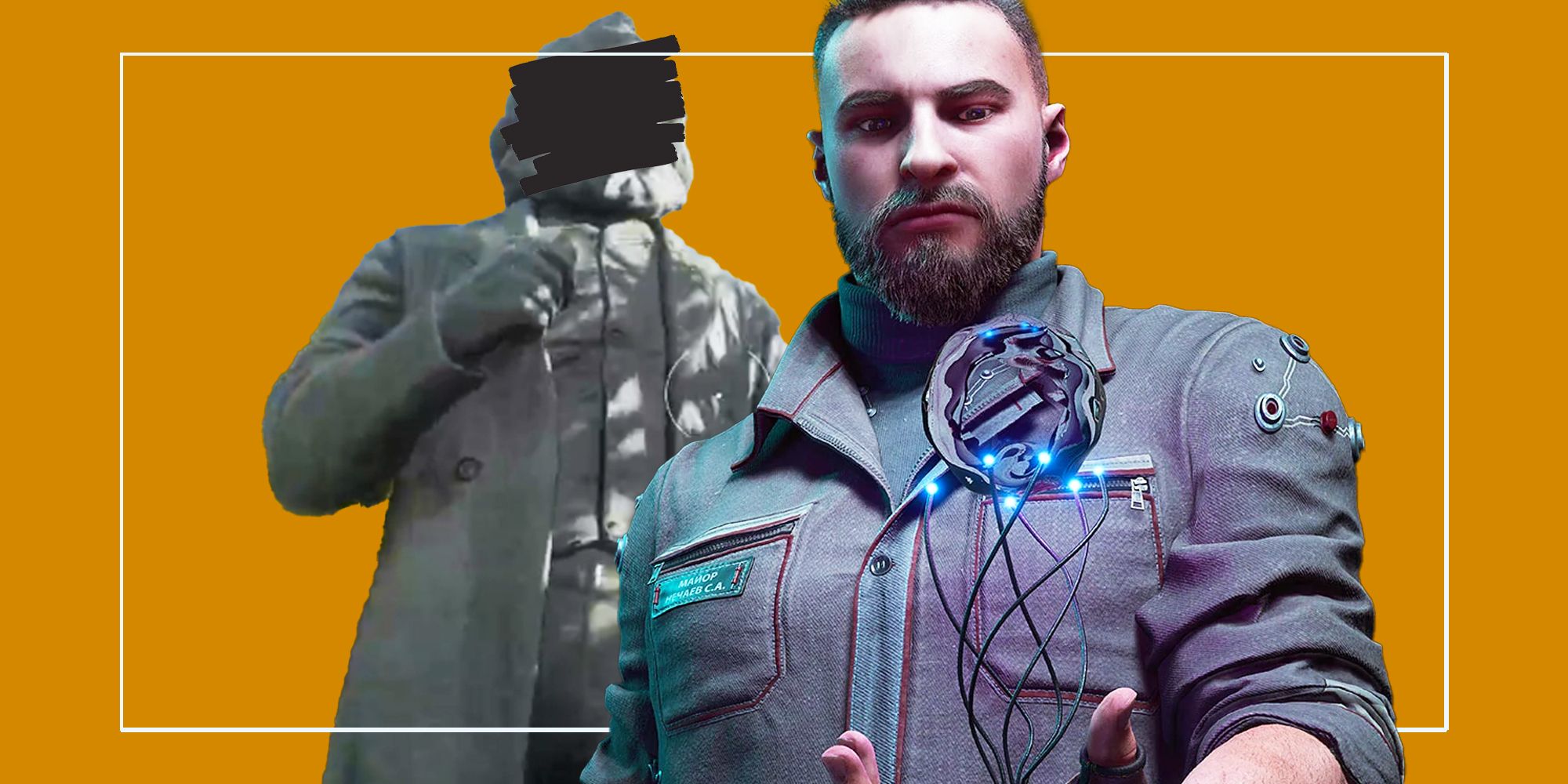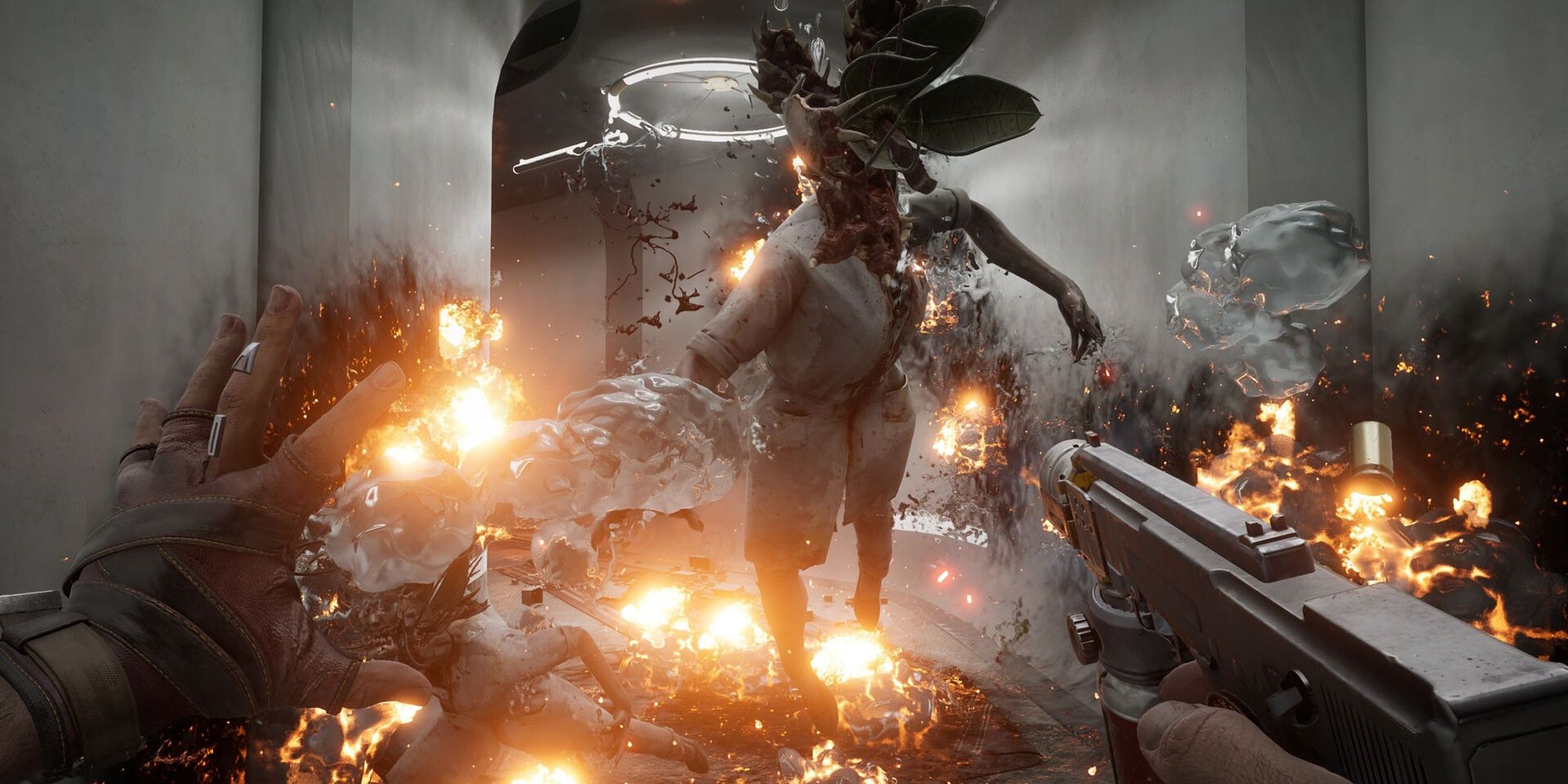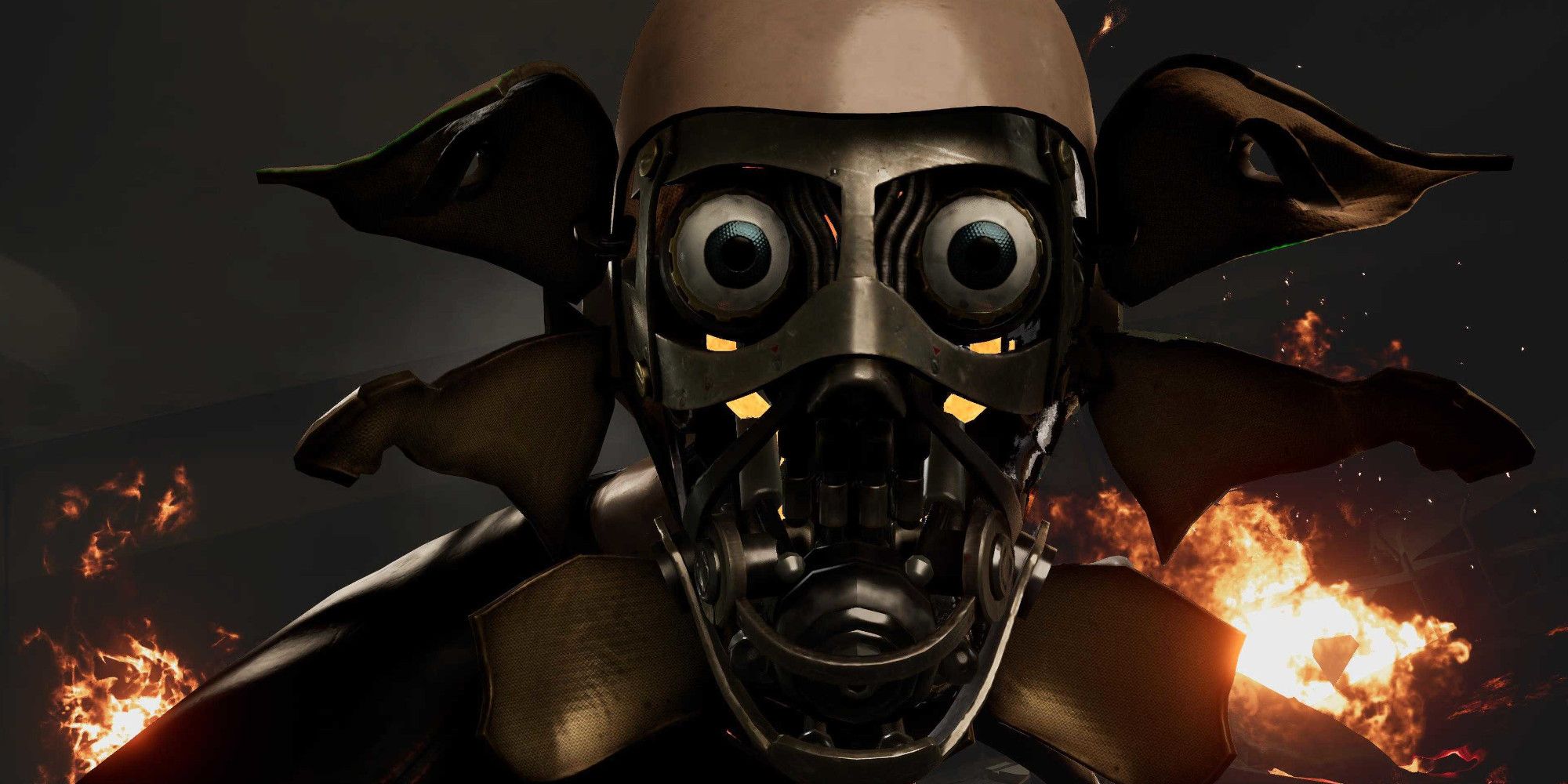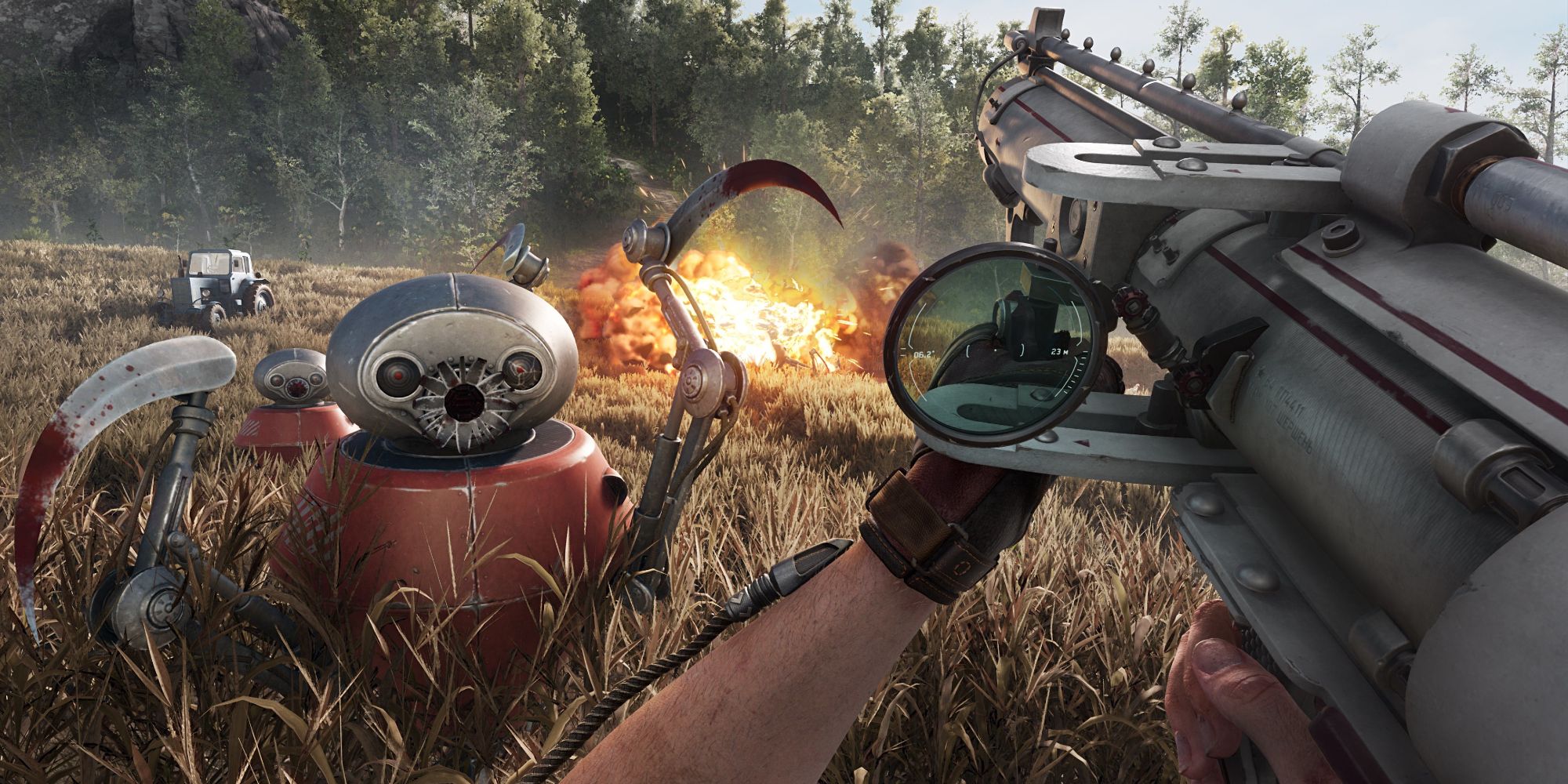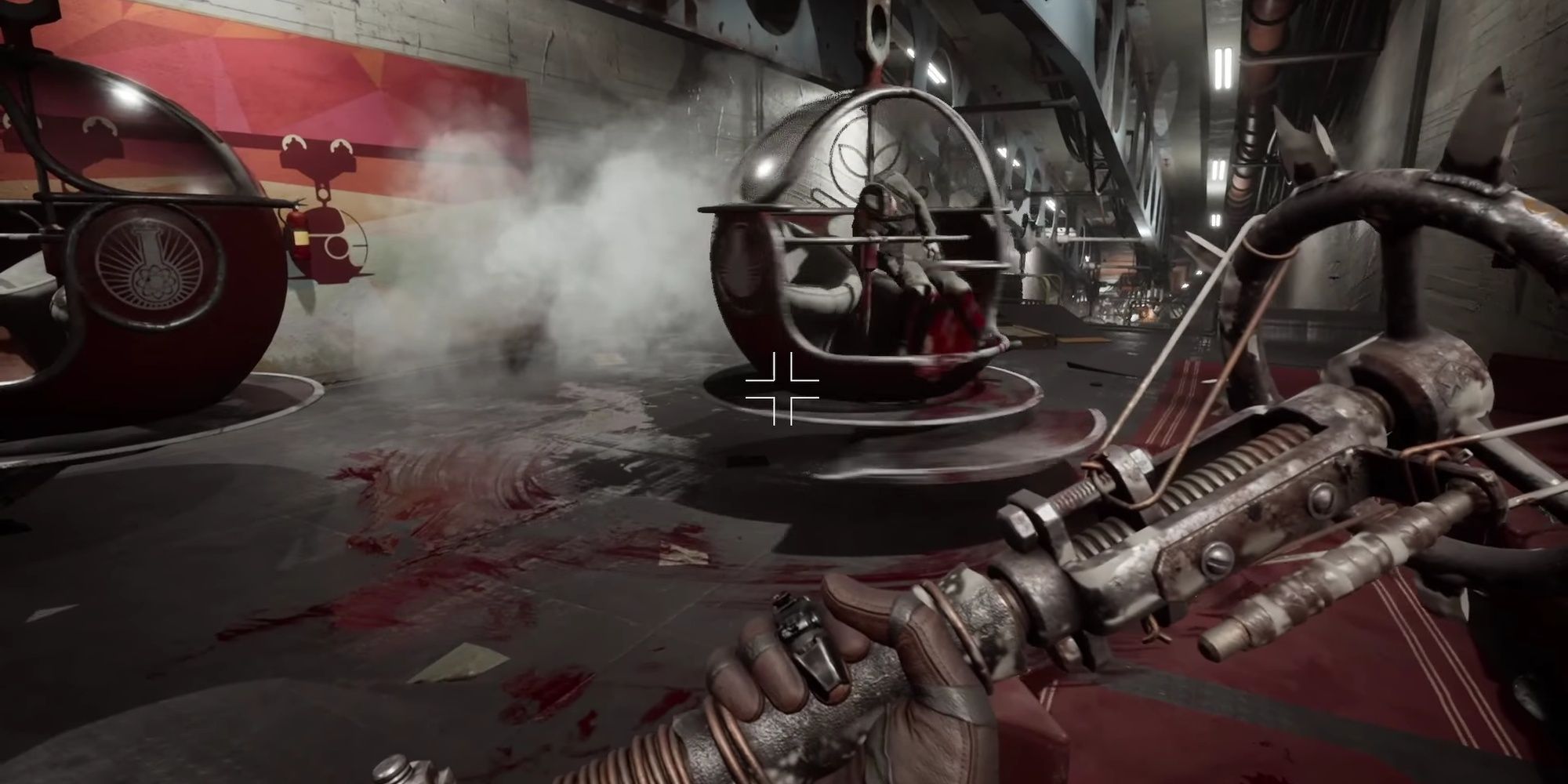Atomic Heart features a statue of Karl Marx, quotes from Animal Farm, and imagines an alternate history where the Soviet Union becomes a world leader in science (with a particular focus on robotics) in the aftermath of World War 2. Some have described it as an alternate history where the USSR wins the Second World War, but that’s not so much an alternate history as it is ‘history’. In any case, this is a game with politics baked through it, so why is it so afraid of them?
During the marketing campaign for the game, the game’s official account tweeted “we do not comment on politics and religion,” which was in response to criticism the game had over alleged Kremlin ties and the suggestion that, through the silence of complicity, the team supported the invasion of Ukraine, prompting composer Mick Gordon to donate his fees for the game to the Ukrainian Crisis Appeal. You can read more about the situation and our decision to cover it here. There are two factors to this, one I understand, and one where Mundfish had no need to create this situation for itself.
The real-life war is understandably a complex one. Mundfish’s funding might come from the Russian authorities, but several financial experts have explained that such a situation is not unusual and does not necessarily mean pro-Putin sensibilities. Meanwhile, though the devs themselves are no longer based in Russia, they will undoubtedly have some family members who are, and criticising the war could place them in danger. Ukrainians, who are actively having their homes invaded and blown up, still have the right to not offer Mundfish the benefit of the doubt.
These are all examples of real-life politics. This isn’t like one of the tertiary characters being trans or the lead character being Black. It’s not an ‘I don’t care about politics, I just want to game goddamn it’ where you can seethe about wokeness. There’s an actual war on, and the country who helped fund Atomic Heart started it. I can understand Atomic Heart’s team not wanting to place themselves or their family in danger, just as I can understand Ukrainians not finding that to be good enough. There’s no winner here.
However, in making a statement on how it will not comment on the war, Mundfish also fed the bad actors in the aggressively apolitical gaming audience in the worst way, and for no reason. The statement said “we do not comment on politics or religion”, merely that it was “focused on getting Atomic Heart in the hands of gamers everywhere”.
There’s nothing inherently wrong with this. Many people have grown weary of society’s need to know every artist’s niche political viewpoints in order to evaluate our opinion of their art. A war is not ‘niche’, but there’s an understanding that there is a market out there for ‘no politics’. However, there was a sense of callousness in the follow ups. Atomic Heart responded to just two questions in this thread: the first asking about graphics settings, and the second which included the line “I couldn’t care less about politics, misinformation, and double standards” which asked when PS5 footage would be shown off.
However, it’s one thing to say ‘we don’t talk about politics’ while making, say, a skateboarding game. Sure, you can dive deep into the anti-authoritarian roots of skateboarding culture and its protest against gentrification and society’s structural violence towards youth culture, but it’s just skateboarding. Ride around, do kick flips, fun for all ideologies. It’s very different to make a game so forthcoming in its use of political symbols and iconography and then place a blanket ban on discussion.
Part of the issue is the actual war, which Mundfish decided not to comment on. In general though, devs have an aversion to discussing politics, even when making games with political viewpoints or draped in political themes. There’s a cabal of gamers who think politics = woke = bad, but things don’t need to be so narrow. This group also tends to dismiss political discussion with retorts like ‘it’s just a game bro, it’s not that serious!’, which I find baffling.
This section of players love games. It’s a disservice to just call them trolls and move on. They’re deep in gaming culture, not only buying and experiencing new releases, but discussing them with friends and online, buying collectibles, getting tattoos. They love gaming. So why can’t they respect it? Video games are an art form, and I can’t understand how someone can love games then dismiss them as ‘just’ video games when someone else tries to take them seriously.
For as long as they do, companies are going to appeal to this crowd, hoping they can wow them with shiny graphics or exciting gameplay clips or features they’ve already played in other games. Not every game needs to include a fireside chat where the devs explain every element of their political ideology, but it devalues gaming as a whole to make a game dressing up as political commentary then immediately shutting down the conversation.
Atomic Heart is a political game, and to berate fans for trying to engage with these ideas is a sad sign of how politically immature gaming is. To use a quote from Animal Farm and then coddle fans that it’s a comment on nothing, so don’t worry about thinking too hard, is a sad statement on gaming’s lack of respect for its audience. Those of you celebrating this approach to political analysis have your brains set to ‘easy mode’, and we all know how much you hate that.
